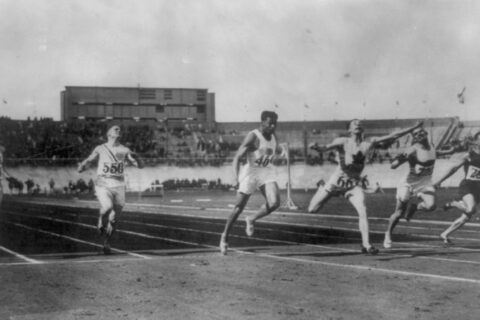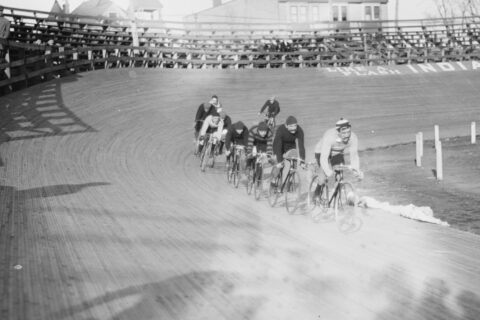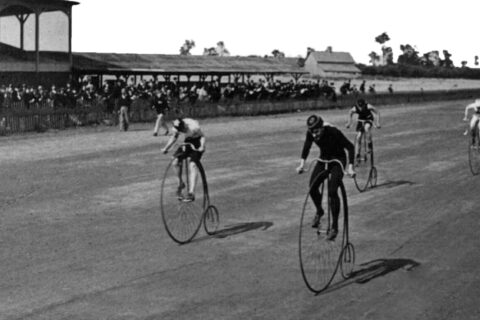If you’re hoping to get your child into sports, or they’re already involved in athletics, then your biggest goal for them is just to see them succeed. But how to support your child in their journey to success isn’t always so straightforward. You may wonder what your role is in their athletic development, and how it compares to that of their coach.
Lee Povey, a leadership coach and former Olympic development coach for USA Cycling, believes there are three aspects a young athlete needs to grow to an elite level: physical ability, social setting, and structure. The first aspect is what your child is born with. The third is the coach, governing body, and “everything that supports them in maximizing their potential.” But the social setting is where family and friends come in.
Without the support of family, young athletes aren’t likely to make it very far. But when the support oversteps, it can also negatively affect your child’s athletic career.
The role of the parent
“I think the large majority of parents want to do the best they possibly can for their children,” says Povey. But sometimes it can be hard to discern what that looks like. In Povey’s experience, most parents just need guidance on how to behave and be that support system for their child. When he was coaching cyclists, he liked to put the onus to the athletes for how involved they wanted their parent or guardian to be.
“It’s very impactful when the athletes say, ‘Hey, Mom, Dad, we’ve made an agreement; you’re not allowed in the track center. So you can drop off all the equipment, and then you can go and sit in the stands, but you’re not allowed in the track center,’” explains Povey. “It allows the athletes to feel very empowered.”
That isn’t to say that parents should not be involved in their child’s sport. For Povey, it’s important that athletes are given the opportunity to fail so they can learn from their mistakes and build resilience. Setting expectations are also helpful in building trust between the coach and parent, and the relationship between the coach and athlete.
“Multiple voices in a coaching situation don’t work well,” says Povey. “And if it’s not working, you can change that. But trying to compete on the sidelines is really unhelpful for the young athletes.”
Coach and sport scientist Julie Young argues that communication is critical in fostering a relationship with both the parent and athlete. “One of the most important things is consistent communication and developing that relationship,” she says. “Everyone has to be on the same page in delivering that consistent message. It takes time to develop a relationship and trust.”
It’s okay to support your child by attending practice and asking them questions about how their training sessions went, but it’s also okay to let the coaches do the coaching.
“If [the parents] are in the track center and they’re trying to help the kids—they think they’re being helpful, but what they’re actually doing is they’re stopping the young athletes from developing their own skill sets,” Povey explains.
Similarly, both Povey and Young agree that pushing your child too hard can lead to them quitting their sport. Motivation is an intrinsic quality that cannot be given to an athlete, it can only be molded, according to Povey. “I have seen lots of young kids being pushed by their parents, who then quit,” he says.
“I want kids to be in this for the long game,” Young explains. “And everyone wants things right now. It helps to tell parents, ‘We can go all in and maybe get great immediate results, but there is a high risk of burnout, marking the end.’”
Sometimes kids need a little bargaining if they’re not interested in trying a new sport. You can ask them to give it a chance for a month or so and then check back in with them to see if they’ve changed their mind. But pushing them to stay in a sport when they’re unhappy won’t make them into champions.
Hallmarks of a good coach
Parenting young athletes is a vital role in your child’s development, but it is still only part of the formula in making a successful athlete. Without a good coach or supportive governing body, your child’s athletic career can become stagnate.
However, the type of coach to look for depends on the age of your child—both biological and training age. If they’re under 14 or 15 years old, their coach should be emphasizing training as fun. “It doesn’t have to be highly complicated with this age group or super data-driven. It’s fundamentals,” says Young.
Around the early teens, it depends on what your young athlete wants and how experienced they are. A 15-year-old just getting into athletics may not have goals for performance improvement, while a 14-year-old who has been playing soccer for nearly a decade may already be dreaming of playing in college and beyond. Take into consideration whether your child would like to work with a high-performance coach, or if they’re happy with the level they’re at. Only when they’ve communicated their desires to you should you move forward with a new coach or team.
Povey says, “When myself and my colleague, Ben Sharp, developed the Olympic development program for USA Cycling, the first line on our program was, ‘Make better humans.’ And the second line was, ‘Create Olympic champions.’ Because, for me, you can’t do one without the other.”
A good coach will not only tell you how you can support your child, but also how they plan to support them. Look for coaches that are communicative and want to see your young athlete grow as a person. In doing so they will develop life skills that can be applied outside of sports.
When it’s time to change coaches
Again, the coach is important to your child’s athletic success. If you’re communicating with your athlete and they are unhappy with the training or the way they’re being treated, don’t be afraid to approach the coach to get their side of the story.
“If you don’t like what you’re hearing, change coaches,” says Povey. This especially goes for coaches that are aggressive toward their athletes. “There’s a misnomer that the elite coaches need to be tough and break athletes or kind of crush them to build them back up. You don’t need to do that.”
Povey suggests attending a practice to watch how the coach interacts with the athletes. “Are they kind? Are they thoughtful? Are they encouraging and sharing feedback that’s actionable? Are they irritable? Are they angry?” If you don’t believe the coach is pushing your child to succeed in a healthy way, they don’t need to stay.
But on the opposite end, another issue can arise. A coach may try to hold on to talented athletes for the recognition, instead of letting them move up to a development program or national team. “If a coach is trying to stop your athlete’s progression to a program that is a level up from that program, bad sign,” warns Povey.
Listen to your child. If they’re not enjoying the sport, ask yourself if it’s coming from their own desires around doing the sport or the coaching environment, then take the necessary steps to make them more comfortable.
Remember to keep things fun
If your child shows the talent and interest to be a successful athlete, that’s great! But don’t forget that they’re still young and deserve to have some unstructured fun—especially for very young athletes or those who are just starting out. It’s important to let your child try different things and give them the agency to choose what they like.
“There’s some good evidence that athletes who go on to do well have usually done multiple sports when they were younger,” explains Povey. “You can only develop a broader skill set by having the opportunity to try different things.”
RELATED: What Makes a Successful Junior Athlete?
Young agrees, stating that everyone has their own trajectory in sports. Keeping it enjoyable will only increase the chances that your child will stick with it for years to come.
“I never want the kids to feel isolated by the training,” she says. “At this age it shouldn’t be highly rigid, highly strict. They shouldn’t feel like they have to sacrifice.”




